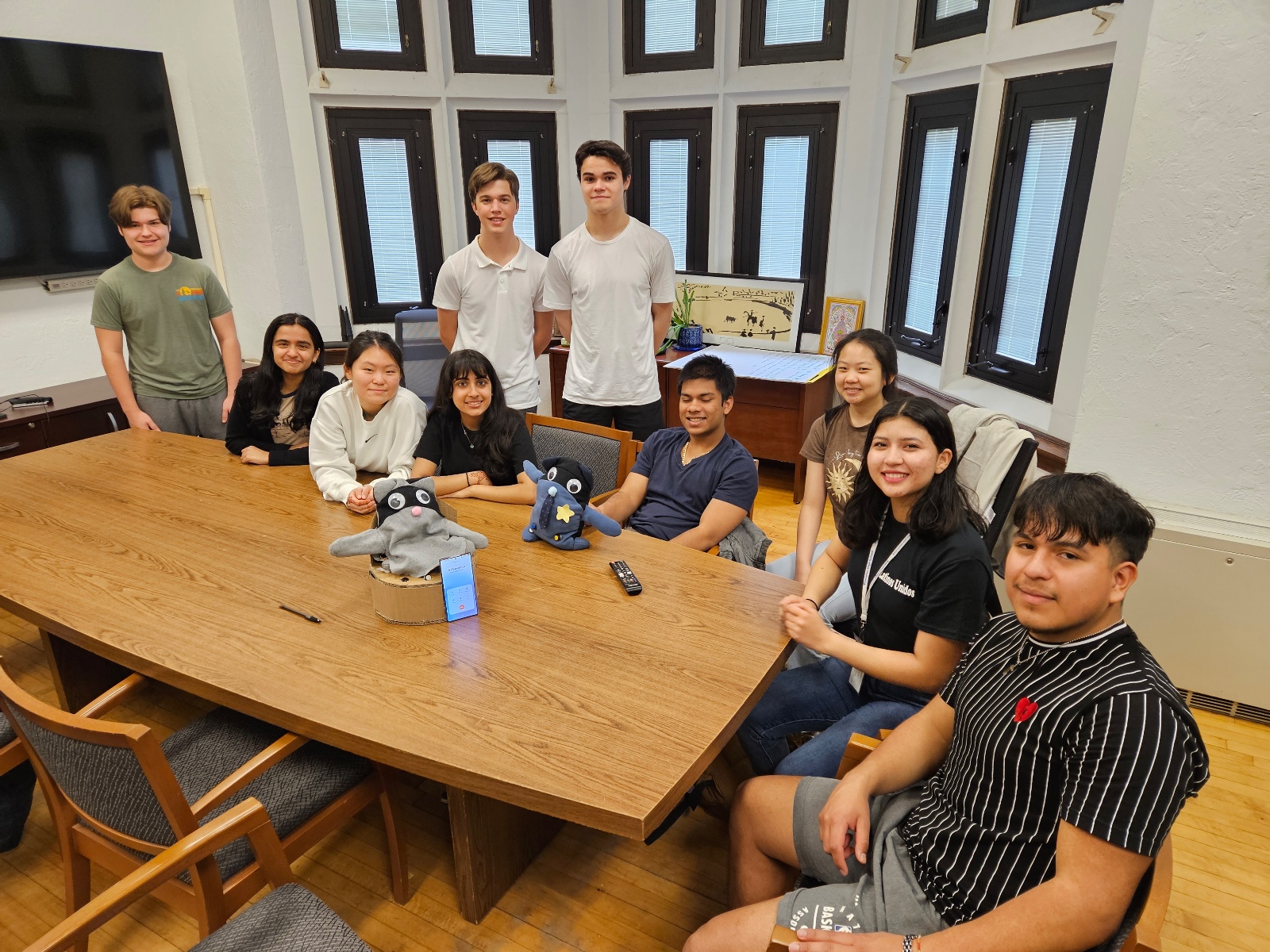PHS research team moves on to nationals
April, 2024
The PHS Research Team, who were announced NJ State Winners in January, have advanced to the next stage of the Samsung Solve for Tomorrow Competition. They now represent New Jersey as one of the ten national finalists, competing for the chance to win $100,000 worth of Samsung products for PHS.
“I mean, [qualifying for nationals] is a really good feeling. We worked really hard. And I think if you track our growth since September, it’s been amazing,” said Hayah Mian ’25, the lead psychologist of the team.
Between winning states and qualifying for nationals, the team has expanded the capabilities of their first prototype, a stuffed armadillo called Che’w that can teach the endangered Guatemalan language of Mam. At nationals, the team will be presenting at Samsung’s headquarters in Washington D.C. on April 29.
“Our focus back then was just trying to make a prototype work, and I feel like now it’s trying to get the presentation [for nationals] together by working on the script and the video,” said Sofia Son ’25, one of the programmers on the team. “We [also] want to improve on the current prototype we’re going to present with.”
One of these improvements is the development of movement through motors. With the motors, the robot will be able to hug and wave, allowing for more animal-like movements and a more friendly appearance so that a user does not feel stressed or anxious when interacting with the robot. On the programming side, the team has focused on gathering enough language data so that the robot can maintain complex communications with users and vary its answers with AI and machine learning.
“At the moment, the robot is not intelligent. It doesn’t use machine learning or AI because we don’t have enough data,” said Debdeep Sen ’26, another programmer on the team. “Eventually we’ll have neural networks for the language once we have enough data, so it’ll actually understand what you’re saying.”
In order to get this data, the team has partnered with indigenous Mam-speaking communities in Cajola, Guatemala; Oakland, California; and Morristown, New Jersey, as well as university professors from the University of Kansas and Princeton University.
As the team works on improving the functionality of the robots, they are also increasing the sustainability of their designs, which is one of the main goals of the project. Previously, they had created a stuffed armadillo, Chico, which was scrapped due to issues surrounding the ethics of the manufacturing process and sustainability of their material sourcing. Now, they are collaborating with Fluffmonger, a company that designs environmentally friendly plushies, which are then assembled in local Mam-speaking communities, including in Guatemala.
“We wanted to move towards a locally and more ethically soproduced solution ... and [Fluffmonger] just [sends] us these blueprints for making stuffed animals, and then we stitch [them together],” Son said.
The team uses cloth made from recycled materials and clothes that are hand-sewn by local communities. Post-competition, the team hopes to transform their project into an ethical and sustainable business.
“The plan is for [the project] to become a business model after the competition. Our goal is to teach younger research students and middle schoolers how to build the robots because we want to be able to teach our students digital literacy along with the different languages ... A lot of us in the project are juniors, so [after] next year we leave. We want to keep [the project] going at PHS,” Mian said.